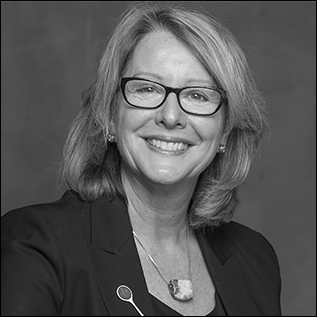Mary MacAusland is a professor of practice of accounting at the Cornell Peter and Stephanie Nolan School of Hotel Administration in the Cornell SC Johnson College of Business, where she teaches courses in financial and managerial accounting, financial statement analysis, and hospitality financial management. Prior to joining Cornell, she was actively engaged in both academe and industry, serving in senior positions in several organizations.
MacAusland is a member of the Global Finance Committee of HFTP with responsibility for the content of the 12th edition of the Uniform System of Accounts for the Lodging Industry (USALI). She has served as treasurer of the Community Foundation of Tompkins County and was a long-time member of the investment committee for the Berks County (Pennsylvania) Community Foundation, where she was also integral in establishing a permanent fund with the foundation to provide grants for tennis programs for at-risk youth. MacAusland previously worked in life-care management and development and has held numerous positions with the United States Tennis Association (USTA), most recently as vice-chair of the audit committee. She served on the executive boards of USTA Middle States, and the Berks County Chapter of the American Red Cross for many years chairing several special events raising significant amounts for local charities.
MacAusland received her PhD from the Pennsylvania State University and her MBA from St. Joseph’s University. She holds a bachelor of business administration in accounting from Temple University.



